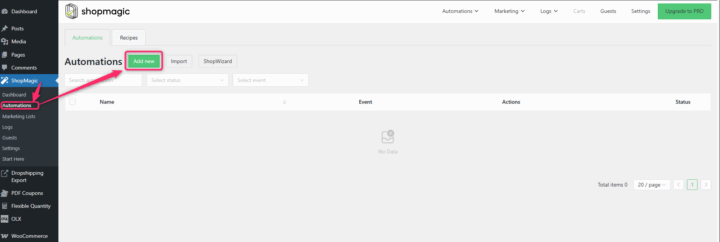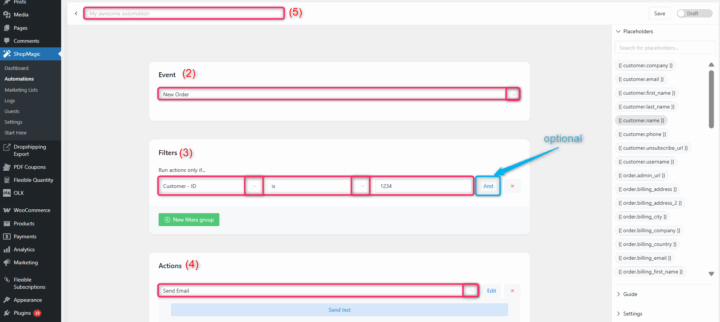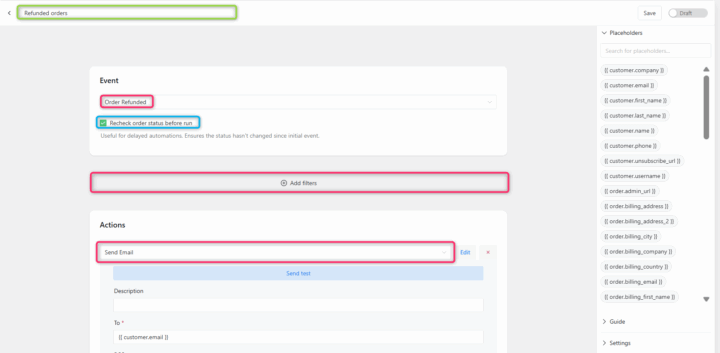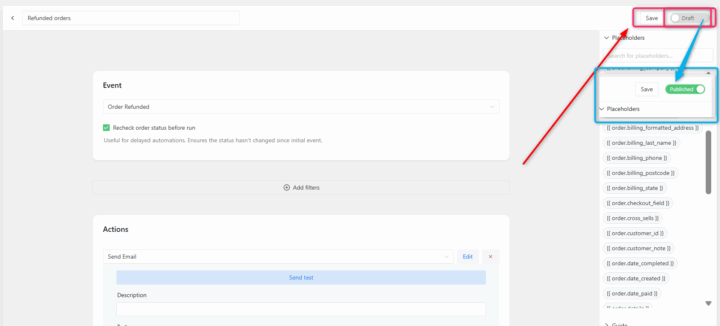Setting up automation for beginners#
Setting up an automation in ShopMagic, such as an automatic email, is easy! Here’s a short guide on how to create the automation.
In our example, we will create an automation to notify the user about an order refund. By creating this automation you will save a lot of time. Instead of sending a lot of emails manually, ShopMagic will do this for you, every time the automation's conditions are met.
How to set up the ShopMagic automation in 8 steps?#
- Find ShopMagic at the side menu of a WordPress dashboard. Click Add new (1).

- You will see a window, where we will set Event (2), Filter (3) and Action (4). There's also a place to name the automation at the top of the page (5).

- Click on the dropdown menu near Event. Choose Order refunded, because as you remember, we are creating automation for the refund. Optional tip: Consider Rechecking order status before run to be sure, that the order status did not change in the meantime.

- In our example, we will not assign Filter, because our goal is to set a global automation, which will work for all products in the store.
- Now it is time to select an Action. You can choose from many variants, but for the sake of this guide, we will pick Send email.
- Fill out the email form. If you have any trouble, check how to use automation settings, where all of the fields are deeply explained.
- Click the Publish button, which is located at the top-right corner of the WordPress dashboard.

- That’s it! Your automation is set and will work for every order refund in your store.


